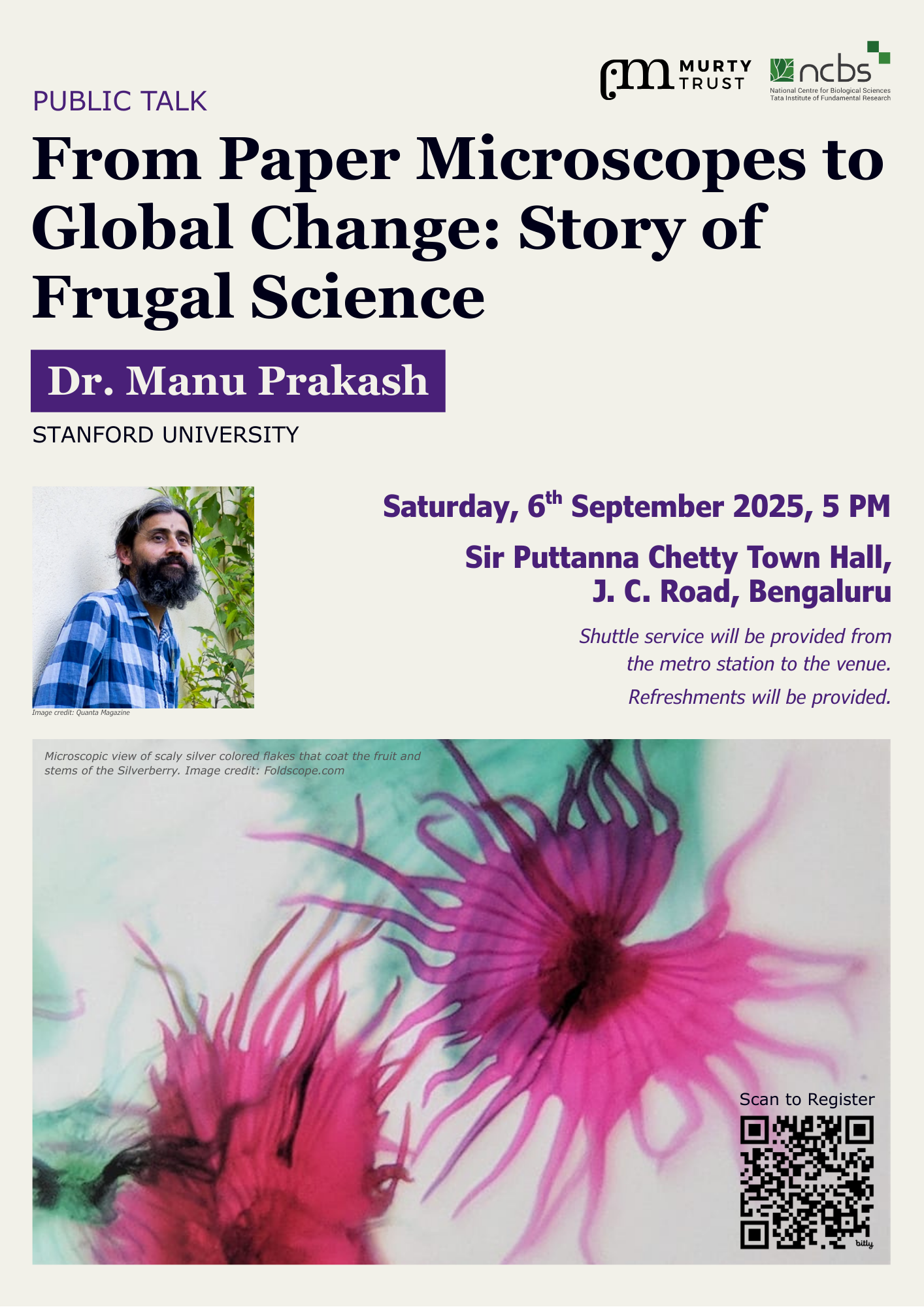From Paper Microscopes to Global Change: Story of Frugal Science - A public lecture by Dr. Manu Prakash
Registration Link: https://forms.gle/mFmjNFinbBrCgHzp9
Title: From paper microscopes to global change: Story of frugal science
Summary:
What if a microscope could fit in your pocket? Or a centrifuge could run without electricity? These aren't just thought experiments; they're real inventions by Manu Prakash, whose "frugal science" philosophy is democratizing access to powerful scientific tools for the masses. By connecting soft-matter physics to real-world solutions, his work bridges the gap between cutting-edge research and urgent societal challenges in global health, climate change, and science education.
In this talk, Manu will reveal unexpected scientific connections: how astronomy inspired malaria diagnostics, how parasite movement helps combat disease, and how marine snow reveals ocean carbon secrets. You'll discover how his Foldscope brings microscopy to millions of children and how simple physics enables biodegradable solutions to everyday problems. Whether you're a student, teacher, or simply someone who loves asking "how does this work?", you'll leave inspired to see how accessibility and ingenuity can solve the world's biggest challenges.
Speaker Bio:
Manu Prakash grew up in India with a deep sense of curiosity and a knack for tinkering. Today, he is an Associate Professor of Bioengineering at Stanford University, where he blends science, innovation, and education to make research tools accessible to all. His "frugal science" creations include the Foldscope (an origami microscope), Paperfuge (hand-powered centrifuge), Abuzz (a cellphone app for identifying mosquitoes) and Octopi (a malaria diagnostics tool). These tools are transforming classrooms, clinics, and field research across the world, including in remote corners of India.
This event is jointly organised by the National Centre for Biological Sciences and the Murty Trust
Furthermore, updates will be shared on this page.



